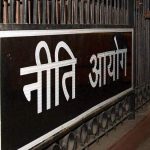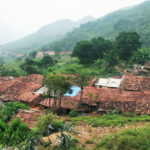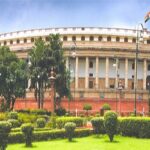The difficult topography of Malkangiri and Koraput makes the job of the administration extremely challenging. While they lack motorable roads and good bridges over rivers and nullahs, mobile connectivity, too, is poor and all these make a situation for the Maoists to terrorise the tribals.
Maoist rebels have unleashed a reign of terror in Malkangiri district. The fear of rebels has forced a tribal family in the district’s Katuapadar village to leave home and take shelter with relatives in another village several miles away. The family of Ganga Madi had to flee the village after a ‘praja court’ (a kangaroo court presided over by the rebels in the areas of their dominance) held Madi guilty of passing information about Maoist activities to the police. He was beaten up publicly and asked to leave the village immediately.
This is not an isolated case. Last October six tribal families under Mathili block of the district had been driven out of their village by ultras who suspected them of being in league with the police. Members of these families were also beaten up and their mobile phones seized.A similar incident had taken place in Malkangiri, the most formidable stronghold of the Maoists, in 2016. Around 30 persons from five tribal families of Dabuguda village of the district were given the marching orders by the ultras who suspected them to be police informers. District administration had arranged temporary shelter for the villagers at the Kudumulugumma block office but they could not even stay there for long.
These incidents illustrate how the Maoists have succeeded in establishing a parallel administration in the tribal hinterland of the state with districts like Malkangiri bearing the brunt of the reign of terror unleashed by them. They hold rallies and ‘praja courts’ with virtual impunity and also organise training camps for fresh recruits. Their word is the law in the areas ruled by them and any sign of defiance is dealt with utmost cruelty.
The fact that left wing extremists are holding kangaroo courts and handing out punishment to people they perceive to be guilty indicates that the government has lost its grip on the areas where the ultras have entrenched themselves. It is the failure of local police and the civil administration in addressing people’s grievances that has emboldened the rebels. They are now trying to replace the official machinery with their own system of dealing with the problems of people and dispensing instant justice.
This is a dangerous trend that must be dealt with strictly and brought to an end immediately. While there is no denying that it has been encouraged by the failure of the administration in reaching out to the people living in Maoist-dominated areas problems that government officials encounter while executing developmental projects in such areas should also be taken into account.
The difficult topography of the interior belt of districts like Malkangiri and Koraput makes the job of the administration extremely challenging. While they lack motorable roads and good bridges over rivers and nullahs, mobile connectivity, too, is poor. The absence of good communication infrastructure is a formidable hurdle that must be overcome in order to make government’s presence felt in these areas.








































